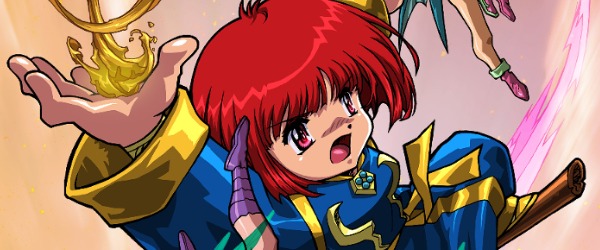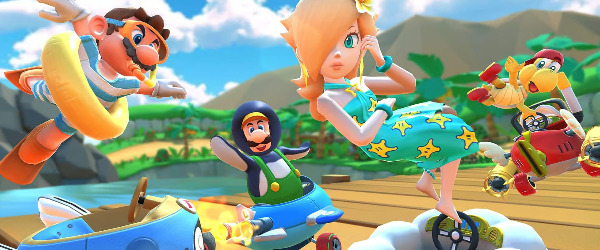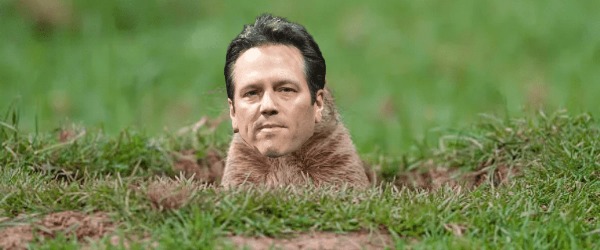
Greatest Video Game Composers: Masashi Hamauzu - Article
by Taneli Palola , posted on 28 September 2016 / 10,522 ViewsA large number of excellent composers tend to be forgotten when people talk about the best video game composers of all time. The reasons for this often vary wildly, from the composer in question having composed mostly for poorly received games to their being overshadowed by contemporaries who happened to work with the same developers and on the same games. Masashi Hamauzu is the perfect example of the latter; he is quite often not even in the conversation when it turns to all-time greats.
Why, exactly? Well, Masashi Hamauzu has had the unenviable task of composing music for Squaresoft and Square Enix since 1996 whilst often being seen as a second-string composer by a company that has famously employed the likes of Yoko Shimomura, Yasunori Mitsuda, and of course Nobuo Uematsu, among many others. Still, despite being constantly overlooked in favour of the aforementioned composers, Hamauzu is undoubtedly one of the most talented and underrated veteran composers working in the industry today.
Hamauzu's career had a very similar start to many of the people we've previously covered in this article series. He studied music in school, and upon graduating from university was quickly hired by Squaresoft as an in-house composer in 1996. During his first year at the company Hamauzu provided a handful of tracks for two small profile releases - Front Mission: Gun Hazard for the SNES and Tobal No.1 for the PlayStation.
By composing music for these two games he immediately found himself working with several notable composers, including Uematsu, Mitsuda, Shimomura, Junya Nakano, and Kenji Ito. While his contributions to these games were fairly marginal, the quality of his work would soon result in him landing his first solo composition role, that being for the 1997 Japanese-only Chocobo No Fushigina Dungeon, which was the first Final Fantasy spin-off title to star the series' long-time mascot.
With his first solo composition behind him, Hamauzu quickly began to rise up the ranks within Square. 1999 brought us his next notable work when he created the soundtrack to SaGa Frontier 2. The PlayStation RPG's soundtrack was really his first major work and proved to be the first of his great soundtracks as well, coming just three years into his career as a video game composer. He was by this stage already marked for great things within the company.
In 2000, Hamauzu found himself working on the next main installment in the developer's flagship franchise, alongside with Nobuo Uematsu and Junya Nakano – Final Fantasy X. Both other composers were chosen for the job by Uematsu himself. Hamauzu was now being trusted to compose music for Square's most important franchise, essentially following in the footsteps of one of the most revered legends in the business. While Uematsu was still undeniably the main composer for the game, Hamauzu provided almost a fourth of its music and was responsible for some of Final Fantasy X's finest pieces of music in my opinion.
Hamauzu's next score saw him return to the SaGa series in 2002 when he composed the music for Unlimited Saga on the PlayStation 2. The game itself is generally considered to be mediocre at best, but Hamauzu's music provided it with one of its few strong points, combining various different genres together to create something truly memorable in an otherwise forgettable game.
2004 would be a landmark year for Hamauzu because, following the departure of Nobuo Uematsu from Square, he became the company's new leading composer. His first project in this role was the soundtrack to 2005's Musashi: Samurai Legend, which he composed together with his increasingly frequent collaborator, Junya Nakano. Additional contributions were also made by a composer duo known as Wavelink Zeal.
The following year he created the soundtrack to the highly anticipated Dirge of Cerberus: Final Fantasy VII. Unfortunately, the game proved to be fairly unremarkable, especially in terms of gameplay, which showed the developer's lack of experience in making shooters. The story was an interesting continuation of Final Fantasy VII's, and the music ranks comfortably amongst its better aspects, so while the game may have been a disappointment there were still aspects to it that I definitely found enjoyable.
Hamauzu would then go on to compose music for two significantly smaller profile releases in 2008 - Oolong Tea Story and Sigma Harmonix - neither of which were released outside of Japan. In general, finding any information about Oolong Tea Story when researching for this article was actually very difficult, although some of Hamauzu's compositions for it can be found online.
Hamauzu would then be assigned to compose music for his most high profile game yet – Final Fantasy XIII. This effectively cemented his status as Square Enix's leading composer. The mixed reception Final Fantasy XIII received upon release is now notorious, but as with many of his previous scores, Hamauzu's music for the game is excellent. It may not be quite on the same level as some of the series' best soundtracks, but the music is worthy of the high standards expected of the series.
Soon after the release of Final Fantasy XIII Hamauzu announced that he would be leaving Square Enix and founding his own studio called Monomusik, which is basically just his own personal studio. Despite this he has remained closely tied to Square Enix and has composed numerous soundtracks for the developer ever since, while also working with other developers at the same time.
His first video game projects as a freelancer were released in 2011, starting with the launch of a game called Music Gungun 2. That same year he also arranged the music for Final Fantasy IV: The Complete Collection on PSP, provided some of the music for Half-Minute Hero: The Second Coming, and then returned to compose music for Final Fantasy XIII-2, this time collaborating with Naoshi Mizuta and Mitsuto Suzuki on the soundtrack.
2012 would see him continue working for Square Enix on a pair of Final Fantasy projects. The first of these, Lightning Returns, marked the end of the FF XIII trilogy, and once again he found himself working alongside Mizuta and Suzuki on the score. He was also involved in the HD remasters of Final Fantasy X/X-2, rearranging most of the original soundtrack with Junya Nakano.
In 2014 Hamauzu was one of a number of composers who contributed arrangements for Super Smash Bros. for the Nintendo 3DS and WiiU. That same year he also composed music for an iOS rhythm game called Groove Coaster, again with various other composers.
The following year he worked on two games. The first was a single track called The Ether for a little-known game called Chunithm: Seelisch Tact, which also included single tracks contributed by high profile composers like Uematsu, Mitsuda, and Shimomura. His other work in 2015 was the soundtrack for an RPG called The Legend of Legacy for the 3DS.
Since his debut as a video game composer in 1996, Masashi Hamauzu has established himself as one of the most versatile and talented composers in the industry today. His music is consistently of a very high quality, and despite often being overshadowed by many of his more famous peers in terms of public recognition, he has found his skills to be in constant high demand.
Hamauzu's next project is also very close to release, as he composed the soundtrack to the highly-anticipated World of Final Fantasy, which is due for release worldwide in October of this year. While his music is often noted for its darker themes, the score for World of Final Fantasy seems to be a much lighter affair, which should make for very interesting listening once the game releases.
While his other future projects are still unknown at this point in time, it should be safe to say that his days as a composer are far from over. His close relationship with Square Enix all but ensures that.
What are your favourite songs or soundtracks from Hamauzu? Let myself and others know in the comments below, and as always, thanks for reading.
Sources:
- Hamauzu's website
- VGMdb
- Nobuoumatsu






















